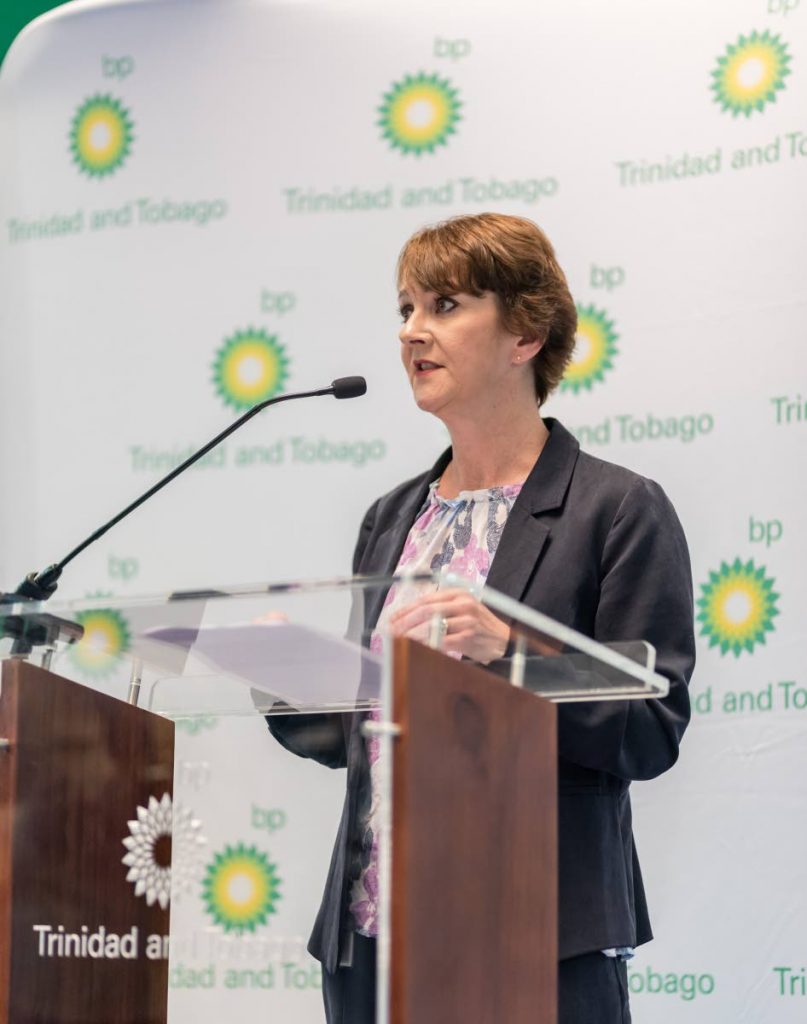bpTT to invest US$8b

THE country’s biggest hydrocarbon producer, bpTT, has remained tight-lipped about the state of ongoing negotiations with the government over liquefied natural gas (LNG) from Atlantic’s train one, but the company is clear that contracts must evolve.
In her first meeting with the media since taking over the helm at the local arm of BP three months ago, new regional president Claire Fitzpatrick said that in order for the local industry to remain competitive, the government must react to the changing commercial environment.
“The days of high prices are over and it’s not just the industry that needs to react but also the country, which needs to adopt and adapt to ensure it continues to offer a commercial and fiscal environment that supports making those investments possible,” Fitzpatrick said during a press briefing.
The company is also in the midst of negotiations for a renewal of its operating contract for Atlantic’s train one, which is 34 per cent owned by bpTT.
“We are at the negotiation stage. We want to find a sustainable way that works for both of us.”
Part of that is recognising that contracting in the future will not look like it has in the past, she said, when it had to be done in a way to underpin the development of train one. Only 16 per cent of LNG are sold to bpTT, she said. As far as the company was concerned, then, transfer pricing (how goods are sold within separate entities that are part of the same enterprise)—a point the government has cited as a potential source of leakage of revenue—is not the concern, but rather, contract pricing— how much it sells the gas produced back to the government via the National Gas Company. As it stands, the company has agreed on a six-month gas supply to Atlantic while negotiations continue.
Fitzpatrick was clear, though, that TT remains a priority for the company—and as proof of its commitment, it intends to invest US$8 billion until 2026, including nine new projects. This country provides 15 per cent of BP’s total production, she said. The company produces 55 per cent of all hydrocarbons in TT. Despite this prime position, bpTT will still have to compete with international projects for funding, she noted, by ensuring its production is done as cost-effectively as possible.
“Yes prices are low for the foreseeable future but the world needs gas. Not only does it need gas, half the world needs more energy and half the world wants clean energy.
Gas is a good transitional fuel as we move into a low carbon future. We believe TT is a great mix in our portfolio on a global basis,” she said.

Comments
"bpTT to invest US$8b"